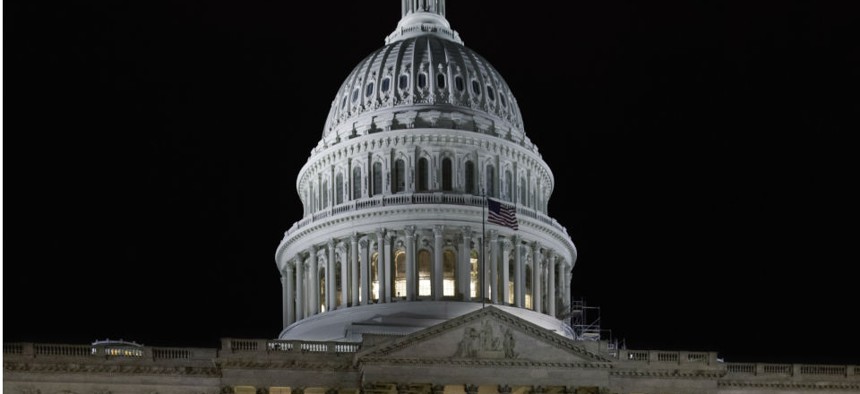Bill Allowing a 1 Percent Pay Raises Clears House Committee
Appropriations legislation does not prohibit a pay hike, meaning President Obama’s proposal could take effect.
The full House Appropriations Committee on Wednesday approved a bill that would allow civilian federal employees to receive a 1 percent pay raise next year.
The committee passed the fiscal 2015 Financial Services and General Government spending bill 28-21. The measure includes a total of $21.3 billion in funding for the judiciary, Treasury Department, Small Business Administration, Securities and Exchange Commission, and other small agencies. It does not specifically set aside money for a pay raise, but it also doesn’t prohibit one, meaning President Obama’s proposed 1 percent boost can take effect.
The Senate version of that appropriations bill also is silent on the raise, and none of the other appropriations bills passed so far prohibit a pay raise.
If there is no specific legislative language that provides funds or prohibits an across-the-board pay raise in any bill -- either stand-alone or omnibus legislation – then the president has the authority to determine a pay raise based on the Employment Cost Index. Obama recommended the 1 percent hike in his fiscal 2015 budget.
The House Financial Services and General Government appropriations bill also includes a significant funding reduction for the Internal Revenue Service, in response to the scandal at the agency’s tax exempt division. The IRS budget would fall to below fiscal 2008 levels, and the agency would not be allowed to give employees awards or bonuses without considering their conduct and tax compliance.
The Senate version is more generous with IRS funding. “Funding cuts are counterproductive to helping the IRS chart a course of corrective action to remedy serious shortcomings in its management and internal controls,” according to a Senate Appropriations Committee summary.







